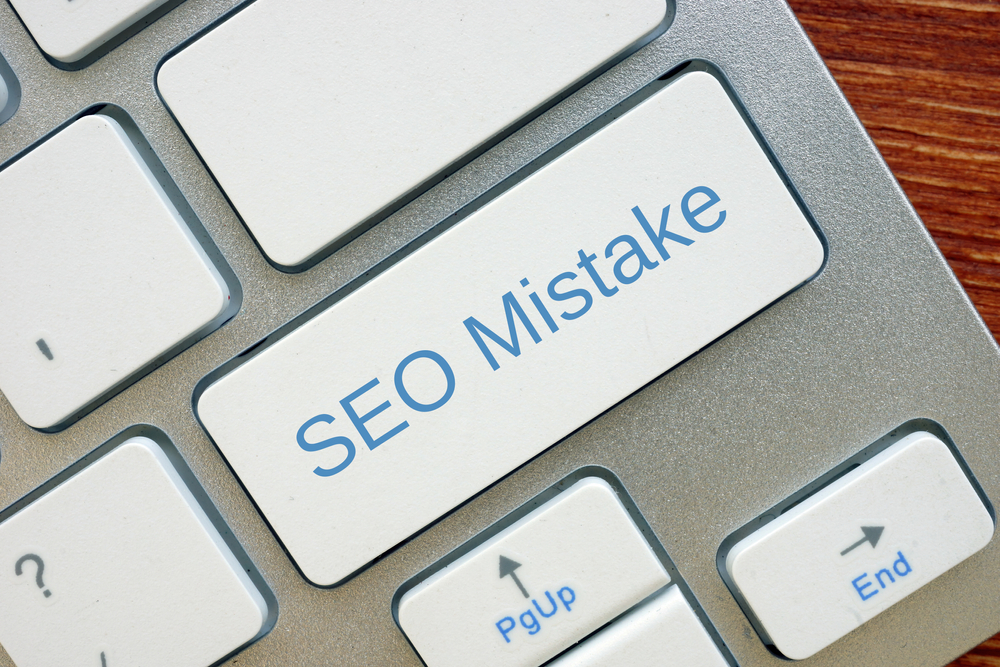
Introduction
In the ever-evolving world of digital marketing, one thing remains constant: the importance of a well-optimized website. However, even the most seasoned marketers can sometimes make On-Page SEO Mistakes. These mistakes can prevent their websites from reaching their full potential. If you need to catch up on your website in search engine rankings. It’s time to look closely at some of the most common blunders that could hold you back. In this article, we will explore the various On-Page SEO Mistakes you are making. We will also provide practical solutions to help you overcome them.
Mistake 1: Poorly Written or Thin Content
One of the most common On-Page SEO Mistakes is having poorly written or thin content on your website. Thin content refers to pages with little or no substantive content. While poorly written content is difficult to read or needs proper grammar and spelling.
Having thin or poorly written content can harm your website’s credibility, turning away potential customers and causing search engines to rank your site lower in search results. Creating high-quality, informative content that is easy to read and provides value to your target audience is essential.
To avoid this On-Page SEO Mistake, ensure your content is well-written and provides relevant, useful information to your audience. Avoid repeating keywords or using filler content to rank higher in search results. Instead, focus on creating quality content that engages your audience and provides value to your website visitors. Doing so will create a strong foundation for your website’s success.
Mistake 2: Keyword Stuffing and Over-Optimization
Keyword stuffing and over-optimization are common On-Page SEO Mistakes that can harm your website’s search engine rankings. Keyword stuffing involves using a high volume of keywords in your content, while over-optimization refers to overly manipulating your content to rank higher in search results.
While it’s important to include relevant keywords to improve search engine rankings, overusing them can make your content sound forced and unnatural and lower your website’s credibility. Over-optimization can also lead to penalties from search engines, making it even harder for your website to rank high in search results.
To avoid these On-Page SEO Mistakes, use relevant keywords in your content, but do so in a natural, organic way that doesn’t detract from the quality of your content. Avoid using too many keywords and focus on providing informative, engaging content that provides value to your audience. Doing so will create a strong foundation for your website’s success in search engine rankings.
Mistake 3: Missing or Ineffective Title Tags and Meta Descriptions
One of the most important On-Page SEO Mistakes to avoid is the absence or ineffectiveness of title tags and Meta descriptions. These crucial elements are vital in determining your website’s search engine rankings and click-through rates.
One common On-Page SEO Mistake is not including title tags or meta descriptions. Alternatively, duplicate tags or excessively long descriptions may confuse search engines and discourage users from clicking on your website.
To avoid these On-Page SEO Mistakes, create unique and compelling title tags and Meta descriptions that contain relevant keywords. Doing so will increase your website’s visibility and attract more users to engage with your content.
Mistake 4: Improper Use of Header Tags
Header tags (H1 to H6) structure your content and make it easier for users to navigate. However, improper use of these tags can lead to On-Page SEO Mistakes that negatively impact your website’s rankings.
One common On-Page SEO Mistake is using multiple H1 tags on a single page. Doing so confuses search engines and makes it challenging to determine the primary focus of your content. Using H1 tags for non-heading text or including irrelevant keywords can also lead to penalties.
To avoid these On-Page SEO Mistakes, use H1 tags sparingly and only for headings that accurately reflect the content of your page. Use H2 to H6 tags for subheadings and ensure they follow a logical hierarchy. By doing so, you’ll create a more organized and user-friendly experience that demonstrates to search engines the relevance and value of your content.
Mistake 5: Slow Page Load Speed
A slow-loading website can lead to On-Page SEO Mistakes that negatively impact your search engine rankings and user experience. If your website loads quickly, users will likely leave and seek faster alternatives.
One common On-Page SEO Mistake is not optimizing images and other media, leading to large file sizes that slow down page load times. Additionally, not compressing code, relying on slow hosting, or using too many plugins can contribute to slow load times.
To avoid these On-Page SEO Mistakes, optimize images and other media by compressing them before uploading. Also, compress code and consider using a content delivery network (CDN) or upgrading your hosting to improve load times. By doing so, you’ll create a faster, more user-friendly website that search engines will rank higher in search results.
Mistake 6: Broken Links and 404 Errors
Having broken links and 404 errors on your website can lead to On-Page SEO Mistakes that harm your search engine rankings and user experience. Broken links occur when a hyperlink points to a page no longer exists, resulting in a 404 error message.
One common On-Page SEO Mistake is not regularly checking for broken links or fixing them when they occur. Additionally, having too many broken links or 404 errors can signal to search engines that your website could be better and more reliable.
To avoid these On-Page SEO Mistakes, regularly check for broken links and 404 errors using tools like Google Search Console. When you find them, either fix the link or redirect it to a relevant page to prevent users from encountering a 404 error. By doing so, you’ll maintain a high-quality website that search engines and users can trust.
Mistake 7: Lack of Internal Linking and Anchor Text Optimization
A lack of internal linking and anchor text optimization on your website can lead to On-Page SEO Mistakes that negatively impact your search engine rankings and user experience. Internal linking refers to linking to other pages within your website, while anchor text optimization involves using relevant keywords as the clickable text of the hyperlink.
One common On-Page SEO Mistake is not including enough internal links or using irrelevant anchor text. Additionally, too many internal links or spammy anchor text can lead to penalties and harm your website’s credibility.
To avoid these On-Page SEO Mistakes, include relevant internal links throughout your website and optimize the anchor text using relevant keywords. Use descriptive and natural anchor text that accurately reflects the linked page’s content. By doing so, you’ll create a more organized, user-friendly website that search engines can easily crawl and rank higher in search results.
Mistake 8: Ignoring Image Optimization
Ignoring image optimization on your website can lead to On-Page SEO Mistakes that negatively impact your search engine rankings and user experience. Image optimization involves compressing and properly formatting images to improve page load times and accessibility.
One common On-Page SEO Mistake is not compressing images or using large, high-resolution images that slow down page load times. Additionally, not properly formatting images for accessibility can harm your website’s usability and hurt your search engine rankings.
To avoid these On-Page SEO Mistakes, compress images before uploading them to your website and use appropriate formats like JPEG or PNG. Also, use descriptive alt text and filenames to make your images more accessible for users with disabilities and to give search engines more information about your content. By doing so, you’ll create a more user-friendly website that search engines will rank higher in search results.
Conclusion
In conclusion, avoiding On-Page SEO Mistakes is crucial for creating a user-friendly website and improving search engine rankings. These mistakes often include broken links, lack of internal linking, and image optimization. By addressing these common errors, you can enhance your website’s performance and provide a better overall user experience.
Regularly check for On-Page SEO Mistakes and make necessary adjustments. This will help keep your website running smoothly and ranking high in search results. By doing so, you’ll maintain a quality website that attracts and keeps visitors engaged. Ultimately, this will lead to higher conversions and business success.

